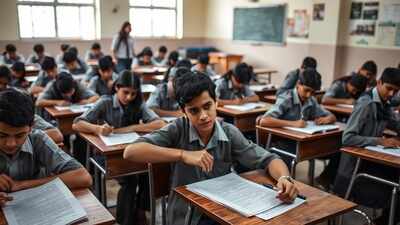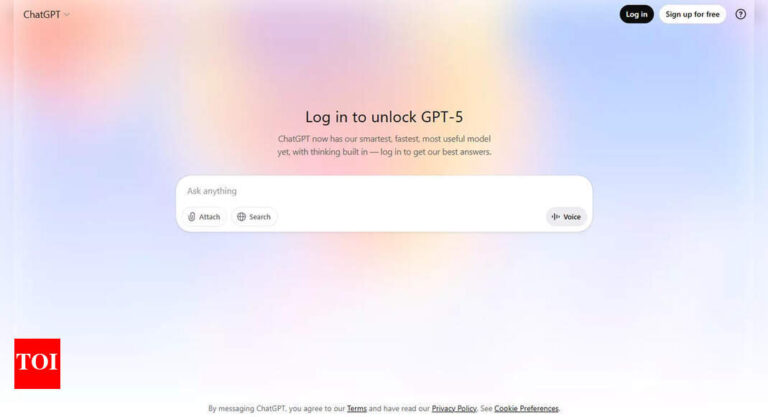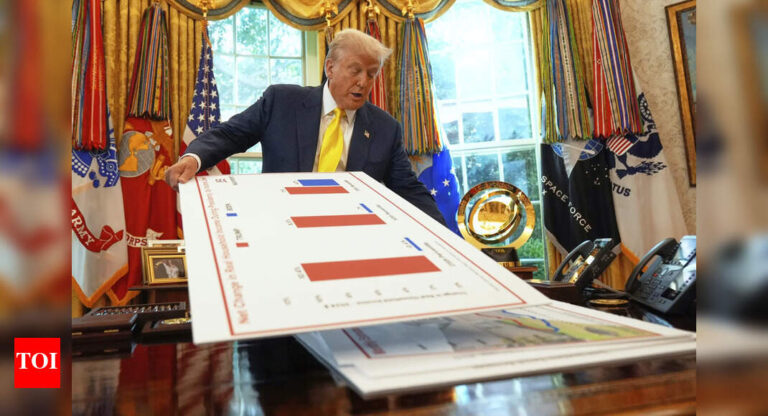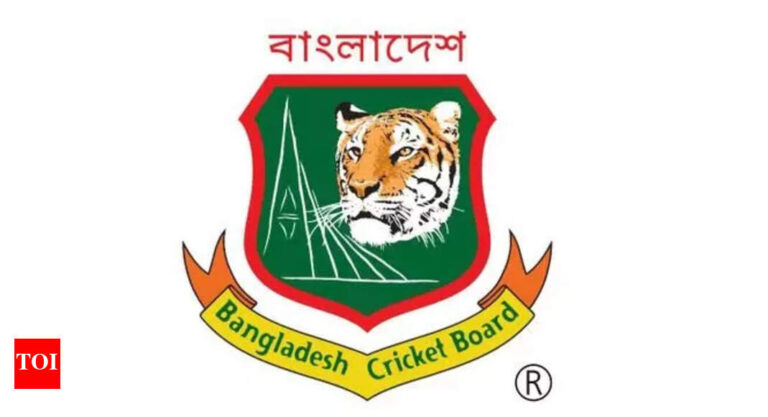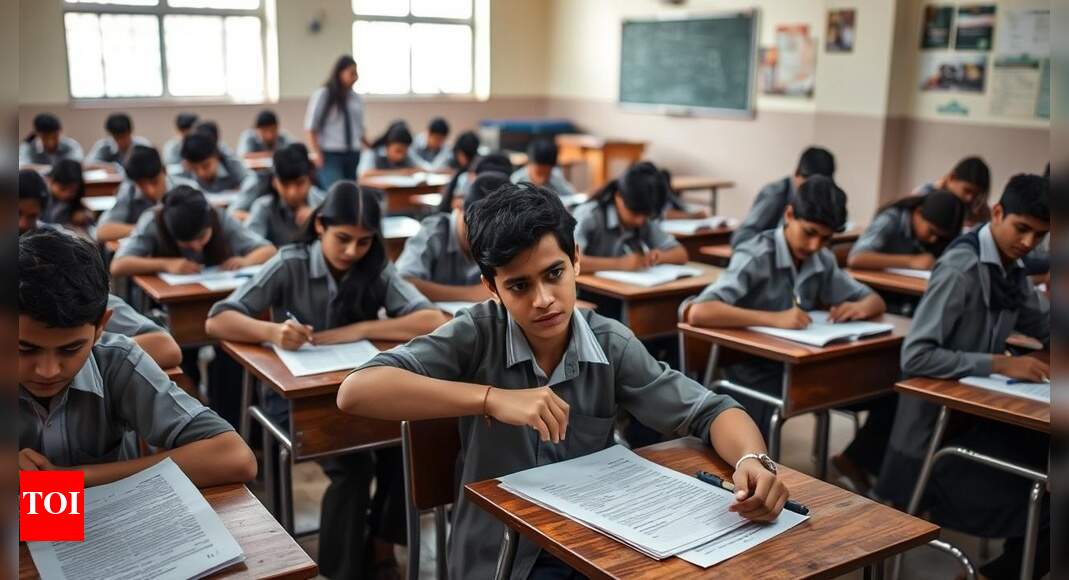
NEW DELHI: The Central Board of Secondary Education (CBSE) has made it mandatory for students to link their APAAR ID with academic records for Classes 9 to 12. This requirement will be implemented from the 2026 board examinations onwards.In addition to the APAAR ID mandate, the board has also approved a revision in the registration and examination fee structure for students in India, Nepal, and other foreign countries. Furthermore, CBSE will establish an AI-powered digital experience centre to enhance access to educational resources.APAAR ID linking to be mandatory for Classes 9 to 12During a recent governing body meeting held on June 25, CBSE proposed the mandatory linking of APAAR ID with student records in Classes 9 and 11 at the registration stage and in the List of Candidates (LoC) for Classes 10 and 12. All affiliated schools have been directed to collect APAAR IDs from students to ensure availability before the commencement of registration and LoC submission.APAAR (Automated Permanent Academic Account Registry) is a unique 12-digit identifier developed by the Ministry of Education under the ‘One Nation, One Student ID’ initiative. The ID is intended to provide a lifelong digital academic identity to each student, integrating their achievements and records into one secure platform via DigiLocker and the Academic Bank of Credits (ABC).Revised exam and registration fee for academic year 2025–26CBSE has approved a nominal increase in examination and registration fees due to rising operational expenses. The last revision in fees took place in 2020.For Class 10 and 12 students in India, the examination fee has been raised by Rs 20 per subject per candidate (a 6.66% increase). In Nepal and other foreign countries, the exam fee per subject has been hiked by 10%. Practical examination fees have also increased—by Rs 10 per subject per student in India and Rs 25 in Nepal and other foreign countries.The revised fee structure is as follows:• Examination fee (Class 10 and 12) — One theory subject: Rs 320 (India), Rs 1100 (Nepal), Rs 2200 (Other countries) — Five theory subjects: Rs 1600 (India), Rs 5500 (Nepal), Rs 11000 (Other countries)• Practical subjects (Class 12 only) — Rs 160 (India), Rs 175 (Nepal), Rs 375 (Other countries)• Registration fee — Class 9: Rs 320 (India), Rs 550 (Nepal and other countries) — Class 11: Rs 320 (India), Rs 660 (Nepal and other countries)Digital experience centre to be set up in New DelhiCBSE has also announced the establishment of an AI-powered digital experience centre at its Integrated Office Complex located in Sector 23, Dwarka, New Delhi. This initiative was approved during the same governing body meeting.The centre aims to provide a dynamic, technology-driven environment where students can engage with educational content. It is expected to foster innovation and improve understanding of academic concepts through interactive experiences.APAAR ID to streamline student data managementAccording to CBSE, linking APAAR IDs will improve accuracy, eliminate duplication of records, and enhance the verification process. Currently, student data is not linked to any standardised identity system, which has led to inconsistencies.The APAAR ID system integrates with DigiLocker and ABC, enabling seamless academic credit transfer and lifelong access to records. It also supports entrance examinations like JEE, NEET, and CUET by serving as a primary identifier.All affiliated schools are required to generate APAAR IDs for students via the UDISE+ portal. The implementation process includes parent-teacher meetings, parental consent, data verification, and ID distribution. CBSE will monitor compliance through the APAAR ID Monitoring (AIM) portal.APAAR system aligns with NEP 2020 and Digital India visionThe APAAR initiative aligns with the National Education Policy (NEP) 2020 and the Government of India’s Digital India mission. It is aimed at improving academic transparency, enabling data-driven decision-making, and facilitating student mobility across institutions.Schools are directed to prioritise APAAR ID generation and ensure 100% student coverage. Resources, implementation toolkits, and a helpline (1800-889-3511) are available to assist institutions during the rollout.TOI Education is on WhatsApp now. Follow us here.

